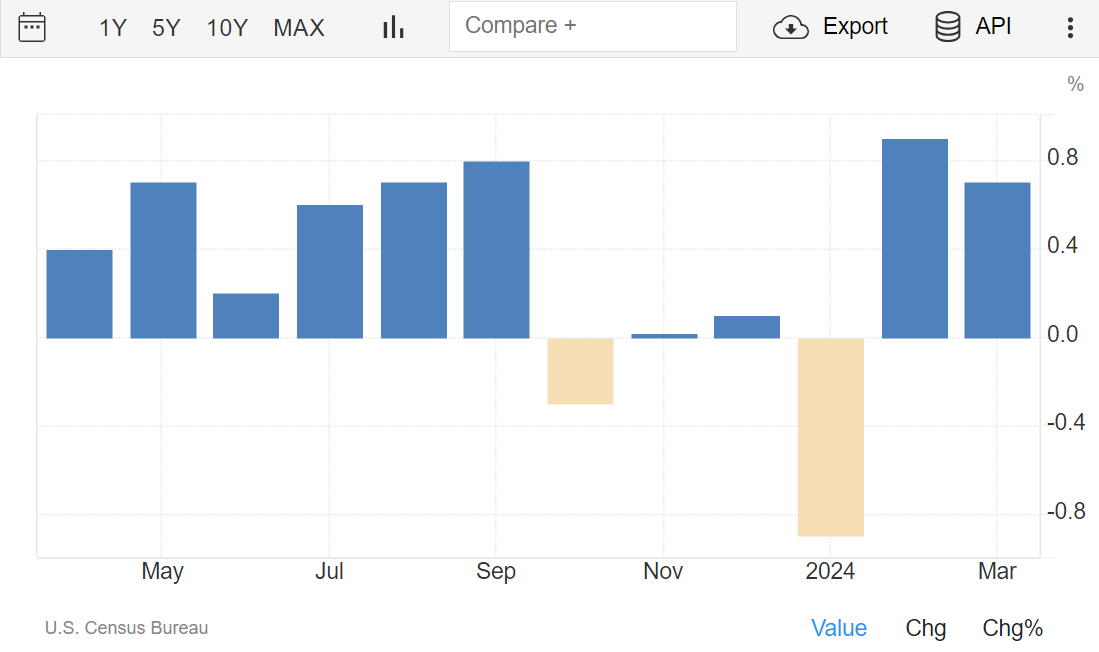In a week marked by significant geopolitical events, financial markets have responded with a mixture of anticipation and caution. The recent airstrike by Iran on Israeli soil has not only heightened tensions in the Middle East but also sent ripples through global financial systems, underscoring the intricate relationship between geopolitical stability and economic predictability.
The Immediate Impact on Oil and Gold
The attack, which targeted Israeli military facilities, spurred a notable shift in commodity markets. Oil prices, which had peaked on Friday in response to rising hostilities, saw a dip with Brent crude falling below $90 a barrel and US WTI crude dropping by 1% to $84.50. This fluctuation reflects the market's nervousness about potential disruptions in oil supply, a critical concern given the Middle East's pivotal role in global oil production.
Conversely, gold, a traditional safe haven in times of uncertainty, saw its price increase. Spot gold rose by 0.3% to $2,349 per ounce, nearing its all-time high, driven by investors' flight to safety amid escalating fears of further conflict.
Global Stock Market Reactions
The stock markets have exhibited mixed responses. Europe’s Stoxx 600 index modestly increased, while major indices like Germany’s DAX and France’s CAC 40 also saw gains. However, the FTSE 100 in London declined slightly by 0.4%. In Asia, the Hong Kong Hang Seng Index and Japan's Nikkei 225 both experienced declines, whereas the Shanghai Composite Index in China bucked the trend with a rise of 1.3%.
This divergence highlights the global nature of financial markets and their varying sensitivity to geopolitical events. Markets closer to the epicenter of the conflict showed more pronounced negative reactions, whereas others seemed to benefit from reallocations within the global investment landscape.
The Role of International Bodies
The International Energy Agency (IEA) has remarked on the increased volatility in oil markets, emphasizing the importance of oil security in the current climate. The agency's insights are a stark reminder of the broader implications of regional conflicts on global economic stability.
Strategic Moves by Nations and Corporations
In the wake of these developments, Israel's government has been deliberative in its response, with strategic meetings to decide the next course of action. Meanwhile, the U.S. has opted for a cautious stance, choosing not to engage directly in military retaliation, which has offered some reassurance to the markets, as indicated by a modest uptick in U.S. stock futures.
Looking Ahead
As investors and analysts watch these unfolding events, the key takeaway is the interconnectedness of global markets and geopolitical stability. The immediate future of the markets will heavily depend on the progression of this conflict and the strategic decisions made by key global players.
In these volatile times, investors are advised to stay informed and consider hedging risks by diversifying their investment portfolios, not only across different financial instruments but also geographically. As history has shown, turbulence is often short-lived, but the lessons learned about the resilience of global markets can provide valuable insights for future strategies.
This dynamic scenario serves as a critical case study for both economic and political analysts, as it combines elements of international relations, market psychology, and strategic economic planning, illustrating just how globally intertwined our modern world has become.
Source - https://www.cnn.com/2024/04/14/markets/asian-markets-gold-oil-iran-attack-israel-intl-hnk/index.html



